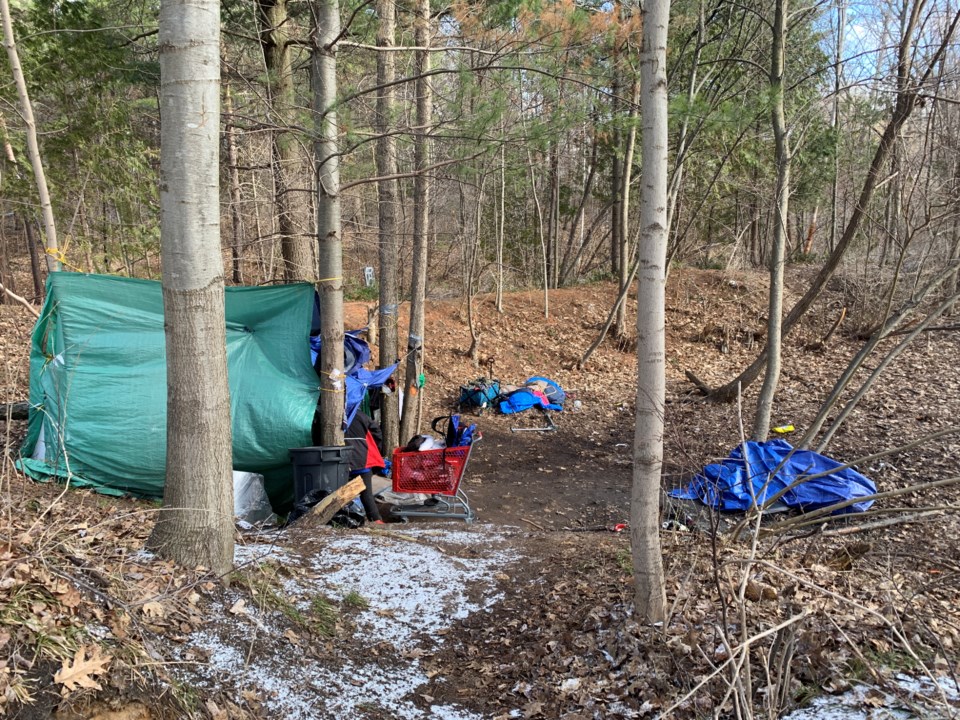The County of Simcoe is expecting to see an 86 per cent increase in funding from the province to help combat homelessness in the region.
That equals an increase of more than $21 million from what the county was allocated in 2022-23 as part of a $200-million-plus annual investment by the province in its Homelessness Prevention Program and Indigenous Supporting Housing Program. That increase brings Ontario’s total yearly investment in these programs to close to $700 million.
The additional funding is meant to help people who are homeless or at risk of being homelessness, as well as support community organizations which are delivering supportive housing.
Any increase in funding during these difficult times is a plus, says Busby Centre executive director Sara Peddle. And although an 86 per cent increase does represent a "big number," whether or not that will be enough still remains to be seen.
“It’s a step in the right direction, but there needs to be deep investment in housing as well as emergency services until we get that housing built," she told BarrieToday. "That’s where that challenge is. Is it enough? It’s a big number, but there’s also a lot of need.
"I don’t necessarily know if it will be enough to show impact. We won’t really know until we begin to put those dollars to use in our community in a co-ordinated way,” Peddle added.
The key is to ensure that money don’t get lost in administration, she said.
“We need to get some services on the ground to make sure we can get people housed and supported through this,” Peddle said.
Addressing homelessness in a compassionate and dignified way provides many challenges, Barrie-Springwater-Oro-Medonte MPP Doug Downey noted in a press release Tuesday afternoon.
The funding increase will also allow officials to identify and address key factors leading to homelessness that may be unique to the community.
“I am grateful we are able to work together to combat this ongoing issue with all-encompassing services," Downey said.
This $21-million investment is "crucial" to serve the needs in the community in order to continue growing and enhancing supportive housing, while also assisting the increasing pressures on emergency shelters, Barrie-Innisfil MPP Andrea Khanjin said in the news release.
“We need to protect our most vulnerable, and that is by preventing and addressing homelessness,” she said.
Inflation has had an impact on the entire population, and as a result Ontario’s homeless crisis is being felt across all cities, including here in Barrie.
“I am incredibly supportive of this much-needed investment in Barrie and look forward to working with all levels of government in a collaborative way to end homelessness in our city and throughout Ontario," Barrie Mayor Alex Nuttall said in the release.
The remaining $11.5 million each year will be invested in the Indigenous Supportive Housing Program (ISHP), which provides Indigenous-led, culturally appropriate, long-term housing solutions and support services to Indigenous people who are experiencing or at risk of being homeless.
"We know Ontario’s housing-supply crisis impacts all Ontarians, no matter their background or budget,” Minister of Municipal Affairs and Housing Steve Clark said in the release. “That’s why we’ve increased funding for our homelessness prevention programs by more than 40 per cent. These measures complement the bold and transformational change we are implementing to tackle the housing supply crisis and get more homes built faster across Ontario.”
Officials say the increased funding is a result of a revised funding model that better reflects the current needs of individuals who are facing homelessness across Ontario. Funding dollars are being increased to address increased needs and to help ensure that no service manager receives a decrease in funding compared to 2022-23 as a result of the transition to the new model.
The changes also address the recommendation in the Auditor General’s 2021 value-for-money audit on homelessness, which called for a better funding model for homelessness programs that would target areas where funding is most needed.



